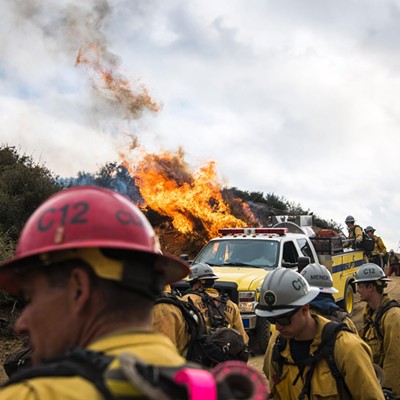• Assemblymembers Gregg Hart (D-Santa Barbara), Steve Bennett (D-Ventura), and Damon Connolly (D-San Rafael) authored Assembly Bill 2298, legislation that would help establish a statewide Protecting Blue Whales and Blue Skies program, according to a Feb. 21 statement from Hart’s office. The program is meant to prevent fatal ship strikes on endangered whales and reduce harmful air emissions by incentivizing shipping companies to slow their speed along the California coast. In 2014, a voluntary vessel speed reduction program called Protecting Blue Whales and Blue Skies was formed by the Santa Barbara County and Ventura County air pollution control districts, which grew to include the Bay Area in 2017. The program encourages ocean-going vessels to voluntarily travel 10 knots or less in designated areas by providing small incentives and publicity to program participants. To date, the program has achieved close to 800,000 slow speed miles, reduced more than 3,200 tons of smog-forming nitrogen oxide emissions, and reduced whale strikes by almost 50 percent, according to the statement from Hart’s office. “The Santa Barbara voluntary vessel speed reduction program is a prime example of what happens when we prioritize public health, protect the marine ecosystem, and showcase the beneficial partnership between shipping companies, public health agencies, marine sanctuaries, and environmental organizations,” Hart said. “Assembly Bill 2298 provides participating companies with the official endorsement of both the state of California and Gov. Newsom for their efforts to reduce emissions and protect whales. This invaluable state-level recognition will increase visibility, interest, and support for conservation efforts along the California coast. The Santa Barbara Channel is now a globally recognized Whale Heritage Area. The entire world is watching what we do to save whales.”
• U.S. Sens. Alex Padilla and Laphonza Butler (D-California) announced that the U.S. Environmental Protection Agency (EPA) awarded more than $510 million to California for drinking water and clean water infrastructure, according to a Feb. 23 statement from Padilla’s office. The funding comes from the Bipartisan Infrastructure Law as part of a $5.8 billion investment through Clean Water and Drinking Water State Revolving Funds (SRF), one of the EPA’s signature water investment programs. Nearly half of this funding will be available as grants or principal forgiveness loans, ensuring funds reach disadvantaged and underserved communities most in need of investments in water infrastructure. This funding will support essential water infrastructure that protects public health and important water bodies across the state. “Every community should have clean, reliable water infrastructure for drinking water, sanitation, and flood mitigation, but far too many cities and towns across California lack adequate water systems,” Padilla said in the statement.
• U.S. Rep. Salud Carbajal (D-Santa Barbara) announced that affordable housing programs he supported in Congress are awarding $3.5 million in federal funds to construct nearly 50 affordable housing units outside of Ojai, according to a Feb. 22 statement from Carbajal’s office. The funding is supporting the Camino De Salud project located at 11432 North Ventura Ave. in the Mira Monte area of unincorporated Ventura County. Once completed, Camino De Salud will feature 48 units for residents who are experiencing homelessness and low-income Ventura County residents. The proposed construction will include amenities like a community garden, charging station, laundry facility, on-site management and maintenance, and common area Wi-Fi. Supportive services, including educational services and case management, will also be provided to residents through local community partners. “As housing challenges have gotten harder on the Central Coast, I’ve worked to boost the federal support our region is getting to lower housing costs and ensure every resident of Ventura, Santa Barbara, and San Luis Obispo counties can afford to put a roof over their head,” Carbajal said in the statement. “Projects like this one are a no-brainer—helping those at risk of homelessness or those already without a home with not just safe shelter, but also supportive services that can help them and their families prosper and thrive.”









